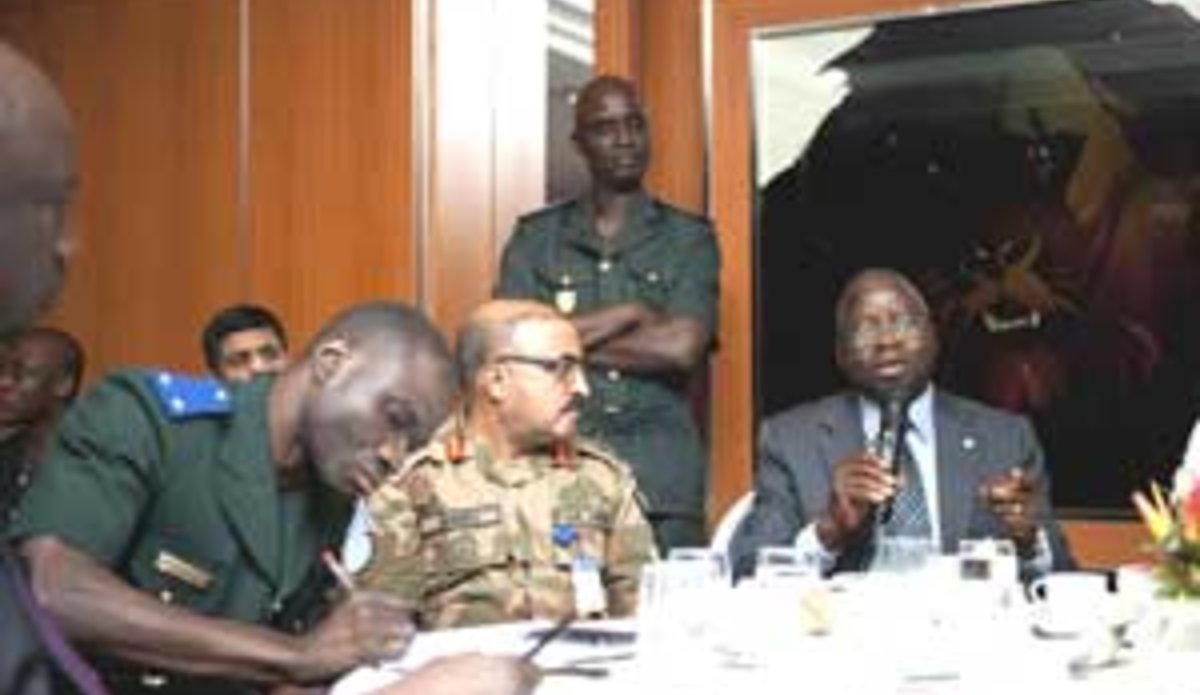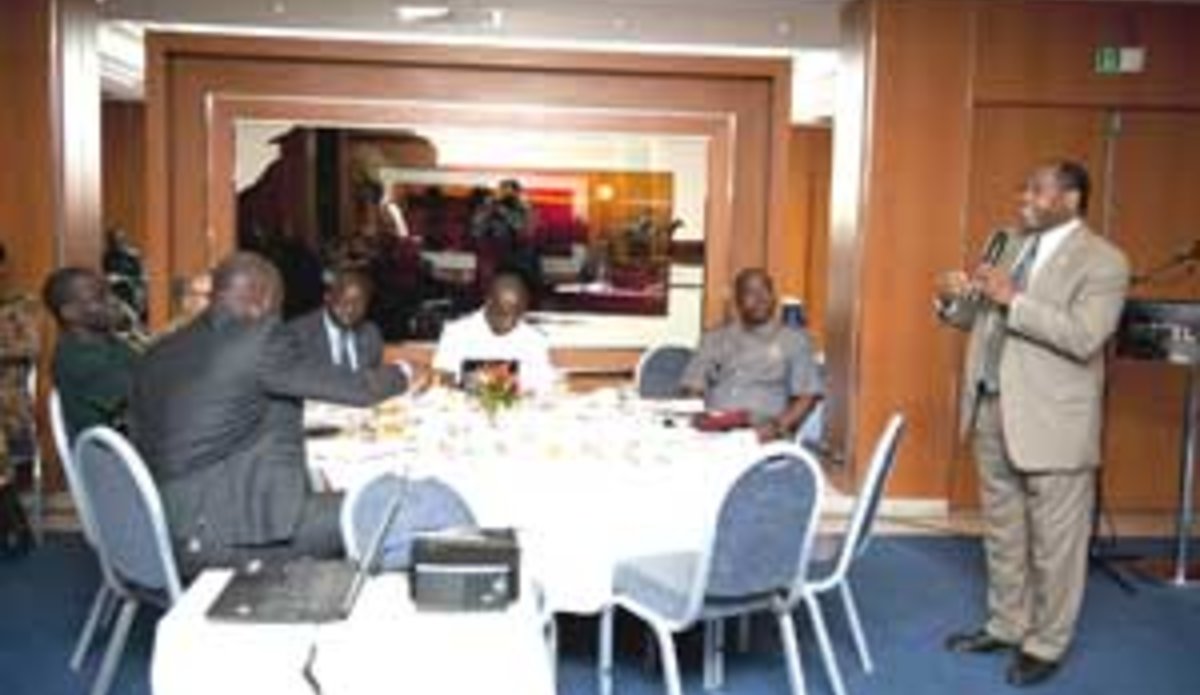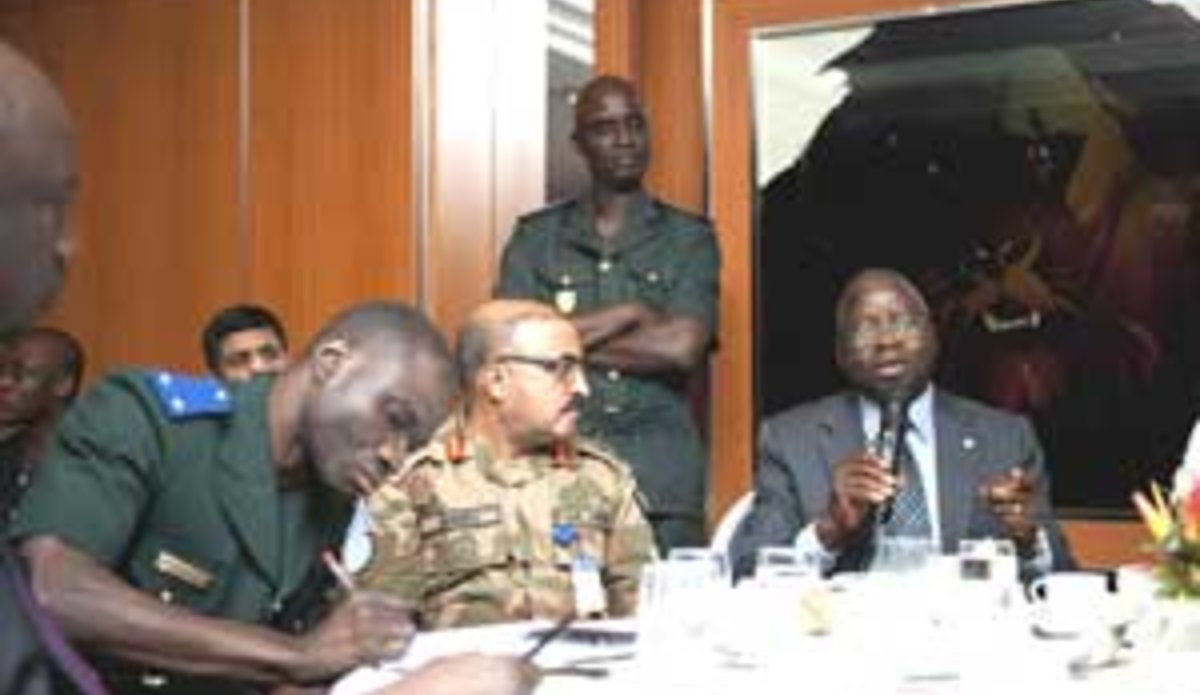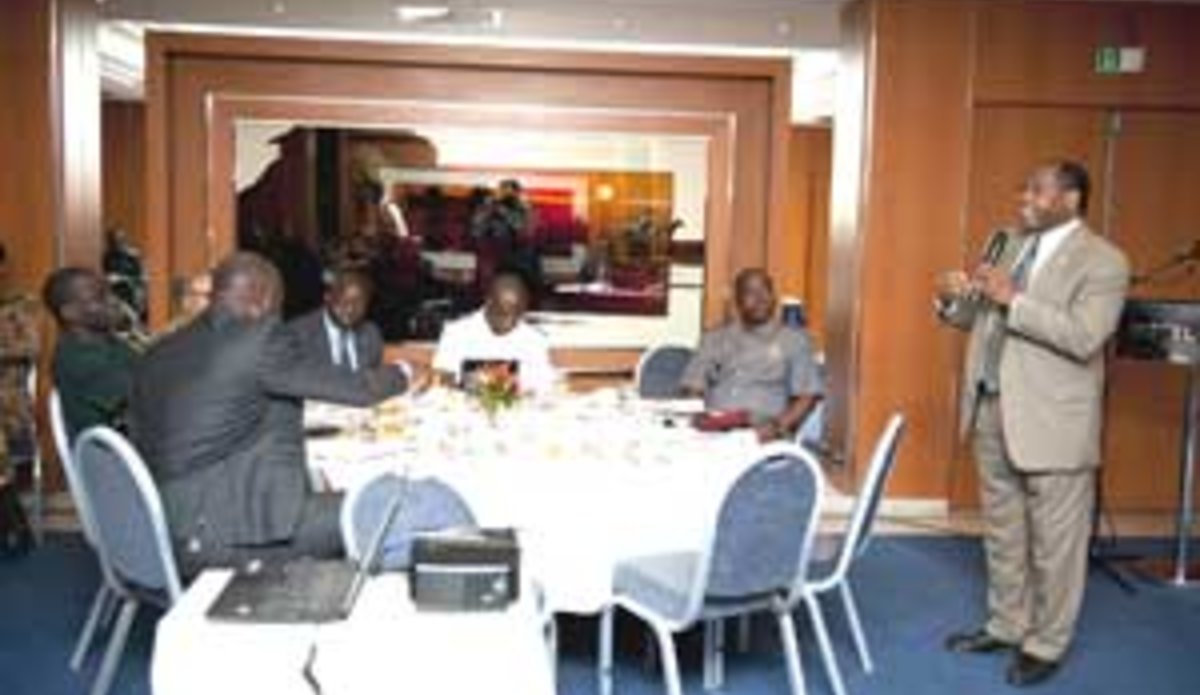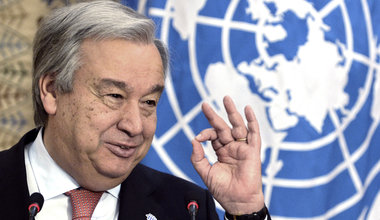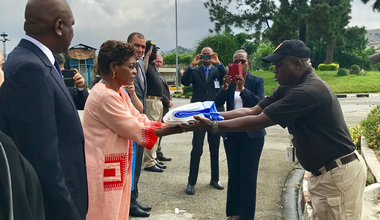Breakfast debate on SSR: FRCI and UNOCI discuss strengthening civil-military relations in Côte d'Ivoire

The Principal Deputy Special Representative of the United Nations Secretary-General for Côte d'Ivoire, Simon Munzu, on 14 January 2015 presided over the first of a monthly breakfast debates for senior officers and commanders of the Forces républicaines de Côte d'Ivoire (FRCI) as part of the country's Security Sector Reform (SSR) programme.
Organised jointly by the United Nations Operation in Côte d'Ivoire (UNOCI) and the FRCI, the meeting brought together senior commanders from the defence and security sector, international experts and civil society actors to discuss « Civil-military relations : the case of Côte d'Ivoire ».
In his opening remarks, the Principal Deputy Special Representative expressed the hope that the session will become a framework of discussion and exchange of ideas that can contribute significantly to strengthening harmonious relations between the FRCI and Ivorians.
Earlier, Mr. Munzu said that it was normal for a nation to insist that members of its military be model citizens who are aware of their obligations vis à vis the people and do not consider themselves as privileged because of the uniform they wear or the arms they carry. These do not give them the right to resort to violence with impunity.
For his part, General Lamine Cissé, former Special Representative of the United Nations Secretary-General in Central African Republic, who also has a long military career, defined the concept « Army-Nation » which was central to the discussions and recalled what conditions and objectives are needed for this concept to become a reality, as well as its contents and principal actions. In this regard, General Cissé explained that in many African countries, the army, due to its particularities and its position within the nation, has often become involved in politics by putting an end to civilian rule through a coup d'Etat.
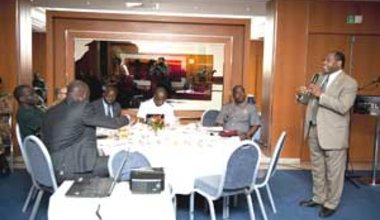
"We have noticed that the armed forces, who, due to the law, have the means of carrying out violence and are professionals in handling weapons, could also constitute a threat to the safety and security of citizens as well as democracy, when they forget their true mission which is to defend the territory, in order to intervene in politics, » he said.
However, General Cissé also noted that it would be unfair to generalise and to consider the army as the only threat to the democratic process in Africa. In his view, the army could gain the trust of ordinary citizens by carrying out civil-military actions which help the development of communities and the country itself.
Professor Bertin Yao Kouassi from Félix Houphouët Boigny University in Cocody, highlighted the evolution of relations between civilians and the military since the post-colonial period until 1999, the year in which the first military coup d'Etat took place in Côte d'Ivoire. He also outlined the initiatives taken to bring the military closer to the people, by adapting to changes in society and stressed the need to have a republican army and to ensure the military institution as cohesive as possible because it is a reflection of the nation. An army is an instrument of development and reconstruction, » he insisted.
The discussions which followed the different presentations focused on what constitutes a Nation, the means made available to an army so it can accomplish its role to assist and protect the people in a way that would lead to better relations between the two sides.
 UN
UN United Nations Peacekeeping
United Nations Peacekeeping
